Quinn's Interview with Jim Norman
QUINN: Jim Norman, former Senior Editor at Forbes Magazine, and currently writing for Media Bypass Magazine after having uncovered Caspar Weinberger's Swiss bank account (we do get punished for some of the truths we uncover, do we not?). Jim is on the phone with us this morning. Good Morning, Jim.
NORMAN: Hi, how are you?
QUINN: Pretty good. I want to give people a chance to get an idea of what it is we are going to launch into after 8 o'clock, and I want to give some background into this. Is it fair to say that since Iran-Contra that the government has sort of been involved in the drug business?
NORMAN: Yes, it goes way back before then, actually. It goes back even to the Vietnam War days -- remember the Golden Triangle, Laos, Cambodia and all that, Pakistan and Afghanistan, but it was always on a much smaller scale. What apparently happened was that in the 80s we got into it in a big way, basically nationalizing the wholesale importation of drugs from Central and South America. The idea was that we control it somehow that way; instead, it has just become the tail wagging the dog, I think.
QUINN: It's become the funding source for just about anything that the government covertly wants to do, and for the moneys that various elements of the government don't want to ask the Congress for, nor do they want Congress to know about.
NORMAN: Right. And it's an arms business, too. They are kind of all tied up together.
QUINN: So it's arms and drugs?
NORMAN: Right.
QUINN: Kenneth Starr is currently our Whitewater prosecutor, and I have long said on this show that I find Ken Starr interesting but also troubling in that there are many elements to the Whitewater scandal. Part of the laments have to do with banking and have to do with Madison Savings and Loan, check kiting, stuff that went on with the Arkansas Development Financial Authority, but basically there are really two elements -- there is Whitewater and then there is all the stuff with Mena Airport, Iran-Contra, drugs into the country, various unexplained deaths, one of them Vince Foster, the possibility of espionage on the part of the first lady, and all of this lies behind a brick wall that Mr. Starr has been positioned upon to make sure that they get Clinton but that the fire doesn't burn past that wall; because on the other side of that wall are Republicans and Democrats. Am I right?
NORMAN: That's right. He is not looking at Mena; he doesn't have the authority to from Janet Reno. He does have authority to look at the Vince Foster death, but I think only inasmuch as it relates to the Whitewater situation. The whole thing is hemmed in and beyond that is this whole national security blanket that has been thrown over big parts of this thing that you couldn't touch if you wanted to.
QUINN: It's interesting, I find, that Dr. Henry Lee, who was part of the defense team for the Simpson trial, has ended up working on the Vince Foster affair. The word that I get is that he is going to say it was indeed a suicide. You have to remember something about Dr. Henry Lee -- he was, oddly enough, the guy that was called in to do some work on the Danny Casolaro death down in Martinsburg, way back in the early nineties. Was it 1991?
NORMAN: I think it was 1991.
QUINN: This was that reporter that you may have heard about that was found dead in a motel room, supposedly from a self-inflicted wound, even though the papers (a year's worth of investigative reporting) were all missing. He was working on the story that he called the "octopus" and basically it's the same story that you are working on, isn't it?
NORMAN: Yes, I know I'm talking to a lot of the same sources. Danny supposedly slashed his wrists twelve times, sometimes deep enough to cut the tendon.
QUINN: Yeah, right. And his files were all missing. Sure, there's a suicide. Right. And they embalmed his body before they even had a chance to inform his parents that he was dead. So it's another "Arkanside."
NORMAN: George Williamson, who is an investigative reporter out of San Francisco, has been working on that. He has come up with all kinds of stuff -- other witnesses that have disappeared, people in the hotel who just aren't there anymore -- disappeared mysteriously.
QUINN: It's interesting. There are a lot of people who are witnesses to various deaths involved with this Arkansas crowd, Danny Casolaro for one. Also, the two young boys on the railroad tracks down in Arkansas who stumbled on the drug operation. A lot of the witnesses around that have met violent and untimely deaths as well. So here are a great deal of ugly people involved in this. We are going to get down to what it all means in terms of government corruption and scandal of immense proportions that touch both parties. This is really nonpartisan. The fact that I don't happen to like "President Pantload" doesn't have a whole lot to do with this; he was just sort of a guy who happened to be there with his hand out at the time. It all goes back to the late 70's, right Jim?
NORMAN: Yeah, and even before that. Let's start with the early 80s when Bill Casey came into office in the CIA under Ronald Reagan. That's when our government decided to embark on this amazing and extremely unbelievably successful effort to spy on the world's banks. We did it! We have been spying on world banking transactions for more than a dozen years. The way we do it is by basically forcing foreign banks, wittingly or unwittingly, to buy bugged software and bugged computers that let our NSA (National Security Agency) which is the intelligence arm of the government, to basically surveil wire transfers all over the globe.
QUINN: Let me ask you this. How do you sucker the rest of the banking community around the globe into buying the software that you are selling?
NORMAN: First of all you sell to front companies like this company Systematics in Arkansas, now called Alltel Information Services. They had another company called Boston Systematics, an affiliate based in Israel mainly. There is Robert Maxwell, the UK publisher, who is fronting this stuff. There are a whole bunch of people fronting this.
QUINN: Wait a minute, Robert Maxwell -- isn't he dead?
NORMAN: Yeah, he is now.
QUINN: Didn't he have an unfortunate accident?
NORMAN: Fell off his yacht in the Atlantic Ocean somewhere.
QUINN: Why, isn't that amazing!
NORMAN: The tinkering of it was mainly putting back doors, just a few lines of code, that would allow somebody to dial into a computer without leaving any footprints, any audit trail that you were in there. Then you could go around and look around in files or you could collect information from a system without the user even knowing it
QUINN: Now this software, which was originally called Promis, was stolen from a company called Inslaw by the Justice Department. It ended up somewhere, probably at E-Systems or somewhere, and it was converted into banking software. It Started out as software designed to track prosecutorial cases around the country. My question is -- why didn't Ed Meese just pay the damn bill, and none of this would ever have come to light! Danny Casolaro was chasing the stolen software when he stumbled on what it was being used for.
NORMAN: Well, the trouble with it was that they bought it for use in the Justice Department, but they were going to use it all over the place. If they were paying royalties on it, Inslaw would know just how extensive the use was of the software, and they didn't want people to know how extensively it was going to be used.
QUINN: I see...
NORMAN: Plus, a lot of the profits from the resale of this went back into private profits. It was customized and resold to the intelligence community. It became sort of a basic platform database tracking system for most of our intelligence agencies and many of those abroad. The idea was "Well, we can all talk to each other now." In fact what it has allowed us to do is basically rifle through other people's data files abroad too, because the stuff was apparently being sold to foreign intelligence agencies and it was also bugged. We have other ways of basically surveilling and downloading foreign electronic databases. The whole computer world is much more porous and transparent than anybody wants you to believe.
QUINN: There is a bank here that I know that uses this software right here in this town, and I'm sure that there is probably more than one. Everybody's got it.
NORMAN: In some form or another. It goes under different names now. It's been modified many times. I think when Inslaw had it, it was a half million lines of code. I'm told now it's a couple of million lines anyway. It's gone through many, many modifications over the years.
QUINN: This company, Systematics, which is I believe still 8% owned by Jackson Stevens at Stevens Inc., who, by the way, is one of the backers of Bob Dole -- how troubling is that?
NORMAN: He is the co-chairman of Dole's finance committee.
QUINN: That's right! Bob's in town -- Hi Bob -- You'd better explain this. You'd better explain Mena, too, Bob, or it's going to follow you to the White House. Systematics, I understand, had an attorney who was kind of off the record doing work for them, named Vince Foster. Is that true?
NORMAN: Yep, that's true. We've heard that from many, many sources now. In fact, Jim Leach's committee has established that pretty well with some of the investigation that they have done. Foster was a trusted deal guy for Stevens at the law firm. Although Foster never shows up officially as an attorney of record for Systematics, he was definitely in the loop, basically smoothing out things between Systematics and the NSA, which was the main government agency that was contracting for a lot of this stuff.
QUINN: So this is how Foster got involved in intelligence, right.
NORMAN: Yes, because there is heavy duty code and computer technology stuff involved here. Apparently, some time in the early 80s he developed this relationship with the State of Israel. In fact, some of the same handlers I am told were involved in the Jonathan Pollard case. They basically nurtured him and groomed him for many years and then bingo, they hit the jackpot -- he ended up in the White House. Apparently he convinced Hillary to help him out on some stuff.
QUINN: So... what is Foster involved in? It's the mid 80s...
NORMAN: Mid 80s. Foster is at the Rose Law Firm. Think of him as a high-level marketing guy between Systematics and the NSA.
NSA -- they have all these spooky contracts that they are trying to find contractors for. Foster would have been sort of a go-between there. Plus Hillary was actually an attorney of record for Systematics back in 1978 when Stevens tried to take over the Financial General Bank shares in Washington. Those bank holding companies later became First American - Clark Clifford, Robert Altman, all that crowd.
QUINN: Yeah, the BCCI thing.
NORMAN: Stevens was fronting for the BCCI crowd and trying to take over this Washington Bank Holding Co. The SEC blocked him at the time, partly because one of the things he was insisting on was that this company Systematics, which at that time was a tiny little thing in Arkansas, he was insisting that they be brought in to do all of the data processing for this multistate bank holding company in Washington. Hillary represented Systematics in that. Now the thing about Systematics at the time -- it was before they even got involved with the bank spying stuff. Abroad for many years, they had been what amounted to a laundromat for covert funds for the CIA and the intelligence community, quite legally, probably. It was done for the national interest. Somebody had to move this money around and Systematics was in a perfect place to do it because they owned the computers and a whole bunch of small banks. They could move this money around electronically without the bankers even knowing about it necessarily, and it wouldn't go through the normal clearing houses. The regulators wouldn't see it. It would just crop up wherever the CIA needed it in whatever bogus front company account, and it was all just bits and bytes; it was a cyberbank -- it still is.
QUINN: I'm here with Jim Norman, former Senior Editor at Forbes Magazine. You know, it's interesting, here is a guy who was with Forbes Magazine, a respected senior editor who figured probably this would be his life's work. All of a sudden, he finds himself a defrocked commando journalist working for Media Bypass Magazine out of what? Evanston, Illinois, or somewhere in Indiana?
NORMAN: Indiana.
QUINN: Yeah, that's right. Now, I've got a question. Before we get into Vince Foster in the mid 80s and Hillary Clinton's role in this, how did you get onto this whole scandal? Where did you walk through the door on this?
NORMAN: I came in the back door completely. Look, I had no ax to grind here against Bill Clinton or the Administration. I hated covering politics. I thought it was all baloney. I'm just a business writer, and I never wanted to get enmeshed in this whole Whitewater/Vince Foster thing, but it started -- for a couple of years I had been following this oil company bankruptcy up in Stamford, Connecticut, because I had covered oil. This thing never made sense to me. There is no reason why this company went bust and, in fact, when I actually got into it and started redoing the oil trading transactions, the reason they lost money: they weren't losing it. They were hiding it. They were parking it off shore with another company that was financing arms sales to Iraq, cluster bombs and stuff like that all through the 80s. And, this Chilean arms dealer, Cardone, who was providing weapons, was also, it turns out, brokering some of the sales of this stolen software. Okay, that gets me into the software story.
QUINN: So that gets you onto the Promis software, and you and Danny Casolaro are now on the same road.
NORMAN: Right, and then in the process of that, I started talking to a whole bunch of rather spooky, strange intelligence community characters, and I was sitting at a guy's living room down in Kentucky one day. He was sitting there in the middle of the night blowing smoke rings, and he said, "Yo, by the way, Vince Foster, he was under investigation." I said, "Under investigation, for what?" And, he said, "Well, it's spelled 'Espionage.'" BOINK!!... and that's how I got on this whole Vince Foster thing.
QUINN: So that's how it happened?
NORMAN: Yeah.
QUINN: Okay, now here it is, the mid 80s. Vince Foster is working for Systematics, and he is coming into contact with the intelligence community. What is, how did Hillary Clinton and the Israeli Mossad and all of this come together and what happened?
NORMAN: Well, I think that they had been... look the Israelis were key partners with us in this bank spying effort. This is a joint allied government effort, and the Israelis were one of the key front people in this, in selling and supporting this software all over the world, so that people weren't thinking they were getting the software directly from the U.S. You know, there was an Israeli front company used to sell this stuff to foreign banks.
QUINN: Well, they sold it to the Moscow bank. I know that.
NORMAN: Well, Systematics did, yeah, and Systematics got involved in supporting this stuff all over the world, a little company in Arkansas... Go figure. Come on.
QUINN: Yeah, really.
NORMAN: I mean, main software people, they operate in New York and places like that and not out of Podunk, Arkansas. So, at any rate, the Israelis had ties into this whole thing all along, and, you know, they are our friends. We do give them a lot of stuff and share a lot of stuff.
QUINN: Well, the whole idea was to track terrorist money, and the Israelis have a great interest in that, and rightly so. There is no problem here.
NORMAN: The name of this problem was "follow the money for terrorist reasons," but once you set that up, you can do all kinds of stuff with it. I mean, we were spying on everybody's money. I think that's probably how we helped bust the Soviet Union. We found out just how deep their pockets were, where their money was, who we could bribe. You know, acting as a financial destruction of their society more than anything.
QUINN: So, how does Foster get involved in espionage?
NORMAN: Well, I think it was money. Money, money, money. And, especially you know with this whole political thing, it takes so much money to run for office. I mean, my theory is that the actual spending is probably twice of what anybody declares when you add up all of the soft dollars and everything. I think there is a tremendous need for money there, and they just weren't real cautious about where it was coming from. I think this thing about selling state secrets to the Israeli's and other countries was just a business. It was just for money. I don't think there was any ideology involved here at all, and it was one of many businesses. There is also insider trading going on here. There was the kickback on drugs and arms stuff and so the money has to go... you have to hide it some way, so it goes into Swiss bank accounts. And Foster would have known that, yeah, we're tracking this money off shore, but there is such a blizzard of information that unless somebody knows exactly what they are looking for they would never find anything. They thought they could cover this up pretty well so Foster had... actually he had several accounts, and there was one in particular in this bank, bank at Villa Switsaria Italiano in Chaso on the Italian border. It is a little kind of a Mafia kind of community there reputed, and so he was taking the money in there for the payments from the Swiss. He was going to Geneva every six or eight months, and his curious one-day trips -I don't think it was for sightseeing.
QUINN: No. I'm sure he wasn't doing any real estate work for Arkansas.
NORMAN: No. The whole thing about money laundering is... you know the money would go into a Swiss bank. Somebody would have to go physically and take it out and take it to a friendly bonded dealer or something like that, buy bearer bonds or other kinds of bonds or something that you could pledge as collateral for loans back in the states and turn it back into cash again legitimately, and so that is how money laundering works. Vince, in effect, was a bag man here because when they go to the White House all of a sudden they hit the jackpot. There was so much more goodies there, and, in fact, Deborah Goram, Foster's executive assistant, testified under oath that Foster had given her two, inch-thick ring binders from the National Security Agency to put in Bernie Nussbaum's safe in the White House. What were these binders? Well, I have talked to brokering experts on this stuff, and they say, "Look, when you are talking NSA binders in the White House, you are talking mainly one thing, and these are the codes and protocols by which the President authenticates himself when he has to call up the Pentagon to say 'let's go nuke somebody'." Now, what was Foster doing with these things? He had no business with them. He would have had no access to them. It would have to come from somebody with access to the Oval Office or the Presidential living quarters.
QUINN: And, who would that be?
NORMAN: Well, I think we know who we are talking about here.
QUINN: We're talking about Hillary Clinton, aren't we?
NORMAN: That's right. She has been under investigation in this whole thing, too, but I think that they had a strong case against Vince and not such a strong case against Hillary. But, you see what happened was, and this is another whole part of the story as to how they got onto Foster. Basically, there was a team of computer hackers and computer intelligence guys in the CIA who were going through most databases. They found names there that they identified as being Foster and Hillary. They put them under surveillance actually before they went to the White House. I think it was between the election and the time that they went to the White House, and that's when the alarm bells went off. They had been surveilling these accounts for a while, and when Foster on July 1, 1993, bought a ticket to Geneva, a round-trip one-day ticket to Geneva, these guys said, "Oops, he's going to take the money. We're going to beat him to it." And, they went in. They hacked their way into the bank and obtained the necessary authorization codes on this coded account for which no signature is required to withdraw money, by the way.
QUINN: Right.
NORMAN: They were able to effect their own technically legitimate wire transfer of this money back to the U.S. Treasury, where it sits in a holding account escrowed for use by the CIA.
QUINN: So, the CIA empties Vince Foster's Swiss bank account of its ill-gotten money.
NORMAN: Yeah, actually it wasn't the CIA. It was this sort of renegade vigilante group of guys they called the Fifth Column that has been out doing this stuff. They don't take any of the money for themselves. The money goes to the...
QUINN: They just do it for fun?
NORMAN: The CIA only gets the money. It is escrowed for use by the CIA but only when the CIA gets rid of a bunch of its bad apples there who've got dirty hands from drug kickbacks, arms.
QUINN: Let's pick this story up. There was a meeting just before Vince Foster died on the eastern shore of Maryland in which Webster Hubbell, Vince Foster, and some others were present. Okay, this was just before Foster died. Pick up the story here.
NORMAN: All right. Well, we mentioned July 1, 1993. Foster buys this round-trip ticket to Switzerland. They raid his account. They take out $2.73 million. Foster apparently calls up the bank to let them know he was coming. They say, "Oh, Vince don't you know you took the money out already?" Boing... that's when he found out he was under investigation. That's when he got so mysteriously depressed. It had nothing to do with editorials in the Wall Street Journal. He had his bank account raided big time, and he knew he was under surveillance, or he knew he was under investigation. And, that started this curious chain of events. Webster Hubbell testified that not so much Vince was depressed, but he was worried. He was afraid to use the White House telephones. The guy had heart palpitations. He couldn't sleep at night. His doctor gave him a prescription for sleeping pills. His sister tried to get him to talk to some psychiatrist. He never got in touch with them. Instead, he hired a high-powered lawyer in Washington, Jim Hamilton, this big deal white-collar crime fix-it guy who handles people who get hauled up for Congressional hearings. And, then there is this curious meeting the weekend before Foster died. He and his wife, Lisa, go down to the eastern shore of Maryland for a getaway weekend, and then, by coincidence, they meet Hubbell and his wife down there. Hubbell, also from the Rose Law Firm, at the time the country's de-facto top law enforcement law officer because Janet Reno in effect was taking her orders from Hubbell. They go over to the estate of Michael Cardoza, who is the son-in-law of Nathan Landau, a big deal Democratic fund-raiser, and Cardoza is also the head of Clinton's legal defense fund. Supposedly, this was all poolside chit chat. Baloney, it was damage control. They were trying to figure out how to contain this scandal from spreading to other people in the White House, and they were trying to lean on Vince to get him to, you know, cop a plea, go quietly, or shut up and don't talk about it. And, in fact, what my sources have told me is that there was actually a huge payment made to an account held by Lisa Foster, with more than $286,000, on the Friday before that meeting.
QUINN: Wait a minute, on the Friday before that meeting, Lisa Foster's bank account gets a deposit of $286 million?
NORMAN: $286,000, yeah.
QUINN: I'm sorry, yeah, $286,000. Okay, so does she take it out?
NORMAN: Well, I don't know what ever happened to that money. It is hard to tell where it came from even. It is all very mysterious to me, but it sure smells like hush money to me. It's like, "Look Vince, don't worry, we'll take care of your money."
QUINN: You don't know if she wrote a check on it?
NORMAN: Well, I'm told that it came through the hands somehow of Sheila Anthony, who was Foster's sister, and at the time she was a "congressional liaison" person at the Justice Department, whatever a congressional liaison is.
QUINN: So she takes the money to Foster, and Foster turns it down?
NORMAN: Well, no... I think he probably accepted it, or it went there. But, apparently, he was having second thoughts, I think. You know, on the Monday after they came back from this meeting, the records showed, the public records showed, that he has a parade of people coming by his office in the White House saying, "Hey, how'd your weekend go, Vince? You cool with this? I mean, you on board with all of this? Everything okay?" you know. Then,...
QUINN: A lot of very nervous people in the White House.
NORMAN: That's right. Then, the day he died he had like a two-hour meeting with another person from the Arkansas contingent there. I think the problem was that they were afraid that Vince was going to talk or that he was going to crack under questioning, and here's a guy who was now, at this point, under intense surveillance. I mean, he had not only CIA counter intelligence people, but you had NSA. You had FBI surveilling him. There was a four-person IRS team we know was assigned to tail this guy, probably in connection with the money laundering aspect of the Swiss bank account.
QUINN: God, this thing's got everything but floats in the... I mean all they need is Goofy, a big balloon with ropes on it following this guy around.
NORMAN: You almost did. I mean, you had the Secret Service with a bomb-sniffing dog squad out there checking his car in the parking lot. The video tapes of that, gone. The video tapes of the room where they are stored, gone. I mean, this whole thing is massively covered up, and I guess it is for national security reasons.
QUINN: Well now, I understand that Foster had a meeting scheduled with Bill Clinton. I believe it was on a Wednesday.
NORMAN: Right.
QUINN: And, it was the Tuesday he was killed.
NORMAN: Right. Exactly. The question is well, gee, was he going to drop something in the President's lap and blow the plausible deniability that he might have on this stuff.
QUINN: Well, this Foster suicide thing is so sloppy. It leads me to believe that on Tuesday they thought he would take the money and shut up, and he didn't take it so they had to do something real quick.
NORMAN: Well, that could be it or that even if he wanted to shut up maybe they were afraid he would crack under interrogation or something. You know, it is just somebody wanted him real dead, and there is a bunch of people who had ample reason for it. This was not suicide. It was not over depression. This was a political assassination carried out on U.S. soil by a foreign government.
The Israelis were involved in this. There was apparently a threeperson Mossad-contracted team that went into the apartment that Foster had gone to that afternoon where he was apparently lured by a female person from the White House staff who I think still works in the White House.
QUINN: Now, who would that be?
NORMAN: Well, I...
QUINN: Because, he had sex with her?
NORMAN: That's the impression, yeah.
QUINN: I mean, there was semen on his shorts. There was brownishblonde hair on his clothing and rug fibers all over him which may or may not have had to do with having sex on the floor. It might have been...
NORMAN: No, I think that was because he was rolled up in a rug afterwards and taken over to Fort Marcy Park. Now, the question is, were elements of our intelligence community involved in helping to dispose of the body and cover it up some way?
QUINN: Who is the woman in the White House?
NORMAN: I can't say.
QUINN: Patsy Thomason?
NORMAN: No. I don't want to say. I suspect...
QUINN: Dee Dee. Well, she's not there anymore.
NORMAN: That name is known. I mean, she has been identified on these tapes apparently, but....
QUINN: I think Dee Dee and Bill are doing it, but that's just me. Anyway, let's get back to the story here. Okay, so I understand at least you are claiming that there is a videotape of Foster's murder?
NORMAN: Well, of the people entering and leaving this apartment a few blocks from the White House where it apparently occurred.
QUINN: Has anybody located this apartment? Do you know where it is?
NORMAN: I don't know exactly where it is myself. I am told it is actually within a few blocks of the White House.
QUINN: Okay, so they lure him here, and they pop him, and there is a videotape of it or there is a videotape of the people going in and out. Then, they go to Fort Marcy Park, and they dump him.
NORMAN: Right.
QUINN: Okay, and we've got a witness now that says they saw the two guys that fit the same description that Patrick Knowlton, the other witness, to Foster's car. He describes the one guy that threatens him. One of those people is one of the two that supposedly was walking Foster, who looked drunk to this guy, into the park, but he says that they laid him out.
NORMAN: Yeah. I don't know too much about all that stuff, but what I know is this, that Paul Rodriguez is the Editor of Insight Magazine, that came up with this Mr. X source. When Forbes decided not to run the story for reasons that were kind of mysterious to me at the time, and while I was still there, they gave me permission to publish it elsewhere. And, as I approached Insight, because they are kind of a gutsy magazine, David Rodriguez made a whole bunch of calls around Washington trying to corroborate this stuff, and I think he was making some headway. Then, he gets this visit in person from some military intelligence guy from the Pentagon who comes to him and says, "Paul, lay off this story. You don't know what you're dealing with here."
QUINN: No. I think we do know what we are dealing with here. We're dealing with the biggest scandal since maybe...
NORMAN: And, you've got Israeli relations at stake here. You know, the intelligence community has a lot of joint ventures with the Israelis. They don't want to "queer" those things. I mean, we do business with those people a lot, and you know a lot of it is probably quite necessary, but you know there is a scandal here that dwarfs the Jonathan Pollard case by orders of magnitude really.
QUINN: I want to discuss a couple of things with you. First of all, now it would appear that a bunch of Republicans picking Kenneth Starr to put him in charge of this investigation of Vince Foster and the Whitewater problem in Washington, D.C. On the surface, it looked like they were going for the jugular, but see, Mr. Starr has some background that leads back to the Inslaw case we discussed earlier in the show about the Promis software and stuff. He excused himself from that litigation.
NORMAN: And, the reason was because he was the inside counsel for William French Smith at the Justice Department in 1982 at the time that the Inslaw software was expropriated by the government...
QUINN: Okay. So he really is not in the position to be the pit bull to expose this. He is in a better position to get Clinton on whatever Republicans need to get him on and make sure that Republicans don't get burned here.
NORMAN: I think that's it. Yeah.
QUINN: Okay, now. Given that that's the case and given that the Washington inside-the-beltway crowd on both sides of the aisle are trying to make sure that the fix is in on this, how do you think or what leads you to believe that this is going to come out, and through what channels?
NORMAN: Well, again, it goes back to resources of mine. Basically, there are a few good guys in the intelligence community, particularly this handful of people in the so-called Fifth Column, who are so incensed about this bipartisan coverup, the government's inability and unwillingness to deal with the high level corruption here, they've just decided to take things into their own hands. They never had government authorization to go raid the foreign bank accounts, but....
QUINN: How many accounts are there? How many people in the government right now have Swiss bank accounts filled with money from BCCI, drug laundering, defense kickbacks, arms trades, I mean all of this nonsense?
NORMAN: Not as many as two years ago. These guys have been out raiding these accounts. They've pulled back $2.5 billion, more than $2.5 billion with a "B" dollars from 300, 400, 500 of these accounts. There is probably 3,000 coded Swiss and other foreign bank accounts that they have been rifling through the computers on.
QUINN: How can there be this many of them and it doesn't come out?
NORMAN: It is because it is endemic corruption. The government is corrupt. Why should we give the President of South Korea $600 million? ... country more powerful, more worth corrupting, more venal and with weaker controls for policing this stuff.
QUINN: Well, because we don't believe it can happen here.
NORMAN: That's right. We're Americans. Well, this is greed and money. But, there is....
QUINN: Well, it's murder too.
NORMAN: That's right, and there have been hundreds of these accounts already raided, and nobody, NOBODY has been able to stand up and say, "I was robbed." Why? Because, the money came from exactly what you said -- kickbacks on drugs, kickbacks on arms, insider trading, and they never paid any taxes on this stuff. They've never disclosed it, and the minimum sentence for willful tax evasion is ten years, that's the minimum. So, what you have going on right now in Congress is basically, there is an Angel of Death. Actually, there are two I'm told. There is one on the Democratic side and one on the Republican side.
QUINN: Now, do they make their rounds together?
NORMAN: No. It's separately. What I'm told is that the people in Congress with these Swiss bank accounts, who have had these accounts, if they haven't already left, if they haven't had the good sense to already get their butts out of there, they have been delivered, hand delivered a brown paper envelope with transaction records of their Swiss bank accounts, and within a day or so they get a visit from this Angel of Death who says it's time for you to go, time to do some career planning, you're out of here, we don't want you in the government when the stuff hits the fan here, as it's gonna do in the spring apparently. The records are going to start coming out. It's going to be obvious. These vigilantes are just going to take this situation into their own hands and release this stuff, I'm convinced.
QUINN: These people are real patriots. They could end up dead doing this.
NORMAN: Some of them may already have. I think... but they've planned this quite well. I think they've got it down now. They know that if anything happens to them, that the stuff would just come out in a gush, so it would be counterproductive for....
QUINN: Yeah, but I mean is it going to come out in the mainstream media. You've got the Mena story being spiked a year ago by Katherine Graham at the Washington Post, and I've uncov... you, what I stumbled on a memo from Paul Keiser yesterday from the editor at the Washington Post who writes me in this memo a flat out blatant lie. He says that the authors of the Mena story, that was supposed to run January 26, 1995, in the Washington Post Outlook Section, had withdrawn the article before the Washington Post had decided to run it, and that's just a flat out lie.
NORMAN: Well, it's technically probably true. But, what they've done, they've left those people dangling by a thread for like 6-8 months. I don't blame them for taking the story elsewhere as the....
QUINN: Yeah, but no, but Jim they didn't. The type galleys had been laid, and the artwork had been done. It was supposed... they didn't pull it until the Thursday before the Sunday it was supposed to run.
NORMAN: Right. Well, technically the Post can say, "Oh, we never quieted you..." That's what they told me at Forbes, too, about my story. Finally, I never got a good reason why my story didn't run at Forbes. Ultimately, they said, "Oh, we didn't trust your sources." But, actually what my immediate supervisor said, "We can't say this about Systematics," which was a big advertiser at Forbes, and we can't say this about the Israelis.
QUINN: Yeah, right.
NORMAN: That's why didn't run in Forbes.
QUINN: Well, there's actually no proof that Systematics has deliberately delivered stolen software. I mean, they may not even know that the software was stolen, and it may be another version of it.
NORMAN: Systematics is under heavy duty investigation, though, right now for money laundering, because once you set up a system for laundering covert funds for the government, who knows what else you can piggyback on top of that. The suspicion is that this was the quid pro quo here in return for laundering, supposedly, call it legitimate funds that the intelligence community can piggyback other stuff to.
QUINN: Let's get back to the Angel of Death here and the resignations in Congress, which have been pretty much attributed by guys like Rush Limbaugh to the fact that Democrats just don't like being in the minority anymore, and they don't have the guts or stamina to stick it out the way the Republicans did for 40 years. And, some of that may be true, but how many of these people who have said that they are pulling their hats out of the ring... And, now we have two Republicans... How many of these people have been visited by this so-called Angel of Death? All of them?
NORMAN: Well, the figures I've heard is that I think there's like 25 or 26 so far since the last election who have decided they are not going to run again or had actually resigned and out of there, like Norman Minetta[sic] from Los Angeles. Of those, I'm told about 21 or 22 so far can be directly attributed to Swiss bank account problems. There is probably another dozen or so that are going to go that way. Again, there is an argument that, "Oh, we just can't stand the nasty politics in Washington anymore." Come on, give me a break.
QUINN: Well, I like Patsy Schroeder. She wanted us to believe that now that the Democratic party is in such good shape she can leave it and it doesn't... did you see that?
NORMAN: No....
QUINN: That was great. Oh yeah, now that....
NORMAN: Patsy Schroeder, somebody noted on the Internet that at the news conference where she was announcing she wasn't going to run, there had already been re-elect Schroeder bumper stickers printed up. I mean, she... take this guy Ron Coleman from Texas, a Congressman down there. He made his announcement at his supposed re-election campaign kickoff party.
QUINN: You're kidding? This is right out of a... this is a movie.
NORMAN: That's right. Listen, these people have been confronted. They've been given 24 hours basically to clean out their desks. That's what it amounts to.
QUINN: So, they're gonna try and get all these people out who have Swiss bank accounts before it hits the fan. Now, when do you suppose that this is going to happen? Can you give us a timetable?
NORMAN: Well, that's happening in tiers. I mean, we've already seen a bunch of departures. I think that the early spring is the timetable. You know, Wall Street is going to get hit with this stuff too. Now, every year in the spring, soon after the first of the year, after these guys collect their year-end bonuses, you have a big exodus. But, I'm told Wall Street is going to get hit with this big time this year because those guys were in it too. You gotta remember, there was so much money sloshing around here...
QUINN: Yeah, really.
NORMAN: ... from arms deals. You could not launder all of that money without the knowing, willing cooperation and participation of major banks, major brokerage houses, and...
QUINN: Goldman Sachs possibly?
NORMAN: Oh yeah. Look, Goldman...
QUINN: I always found it strange that Robert Rubin showed up when he did.
NORMAN: This Goldman, they were the chief investment bankers to Robert Maxwell in the U.K., helped Maxwell loot a half a billion dollars out of his pension funds, and it now costs a huge amount of money for a settlement there.
QUINN: It sounds like somebody's calling you.
NORMAN: They still have the bond for ADFA, the Arkansas Development...
QUINN: Whoa, hold on a second. What's that?
NORMAN: That's another one of these...
QUINN: Well no, I know what it is. You're telling me that Goldman Sachs was holding the bonds for the Arkansas Development?
NORMAN: No, they were the underwriter on a bunch of these $8 billion or so of bonds that ADFA marketed to who knows whom.
QUINN: Oh man. You know, I have transactions on my desk at home, $80 million of money transfers to the Fuji Bank in the Cayman Islands from ADFA, the Arkansas Development Financial Authority, who I believe never had more than $8 million to begin with. I mean, where did they get $80 million, and what's it going to the Fuji Bank for? The interest rate? Come on, the Switzerland of the Caribbean. Jim, I gotta let you go. I gotta wrap this up here, but I want to thank you for joining us this morning.
NORMAN: It's a pleasure. I'll keep you posted as more develops. There's going to be more coming down the pike here soon.
QUINN: Well, I'll tell you what. I'm gonna call you later on today. I'll give you my home number. Let's stay in touch because if what you say is true and if there are truly some patriots in the intelligence community who are finally going to blow the whistle on this. By the way, all of these resignations and the Angel of Death and all of this, I think is evidence that these people know that this is inevitable that this is going to come out.
NORMAN: It's like AIDS. I think there are a bunch of people back before the last election who realized they, in fact, have slept with the wrong woman or person, and they did not run again, but there has been denial, denial, denial by a bunch of these people. Finally, I think it's like the Angel of Death is finally coming around saying, "You gotta go. Bye. You're outta here."
END
The following is a Radio Interview between James Norman, formerly Senior Editor of Forbes Magazine and Jim Quinn, DJ of WRRK 96.9 FM in Pittsburgh. In this interview from December 7th, 1995, they discuss the the possible motive for the Vince Foster murder.
April 9, 1997 note from the Independent Counsel's Office concerning two NSA files and Vince Foster.
Handwritten note found in archived documents from Starr's office of Independent Counsel with the name of "Robert Maxwell" and initials "WH, HC, VF" (Webster Hubbell, Hillary Clinton, Vince Foster) and "Systematics."
April 25, 1995, archived document from the files of Starr's office of Independent Counsel mentions Inslaw and the Israelis.
From archived documents form Starr's Office of the Independent Counsel, "VF cancelled flight to Switzerland"
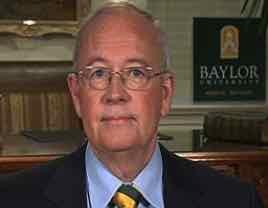
Independent Counsel Ken Starr
now President of Baylor University
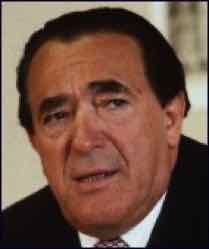
Robert Maxwell
Media proprietor and Member of the British Parliament died mysteriously in 1991 and is buried in Israel. Maxwell was alleged to be a Mossad agent.
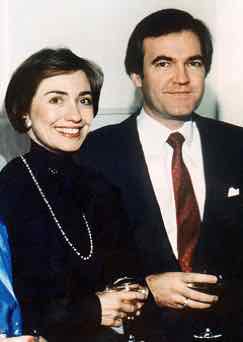
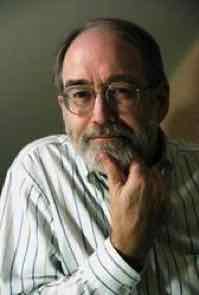
Hillary Clinton and Vince Foster
James Norman
Long time journalist and author and former senior editor at Forbes. White House press secretary Mike McCurry responded to questions from James Norman according to Orlin Grabbe.
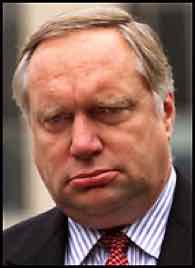
Webster Lee Hubbell, former U.S. Asst. Attorney General

FBI 302 interview report dated April 21, 1994, by Special Agent Russell Bransford. This excerpt with redactions concerns Foster's Swiss bank account
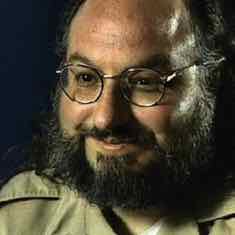
Jonathan Pollard
Pollard is serving a life sentence in prison for selling classified information to Israel.
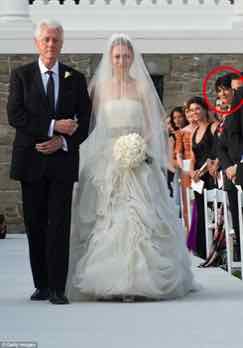
Robert Maxwell's daughter Ghislaine, linked to pedophile Jeffrey Epstein, attended Chelsea Clinton's wedding.
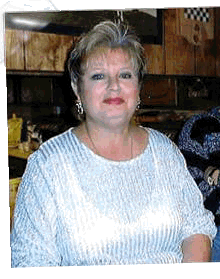
Linda Ives
Mother of Kevin Ives slain in Arkansas
August 4, 1995, archived document from Starr's office of Independent Counsel references Foster's secretary Deborah Gorham testimony to the Senate Banking Committee (SBC) about NSA binders she was given by Vince Foster to put in Bernard Nussbaum's (BN) safe. Also reference to Deborah Gorham (DG) given an envelop from Webster Lee Hubbell (WLH) about Systematics.

Deborah L. Gorham, Foster's executive secretary testified to the Senate Special Committee on June 26, 1995
Found dead in a West Virginia Motel. Danny Casolaro
Foster...was under investigation for espionage at the time of his "suicide" on July 20, 1993
-James Norman